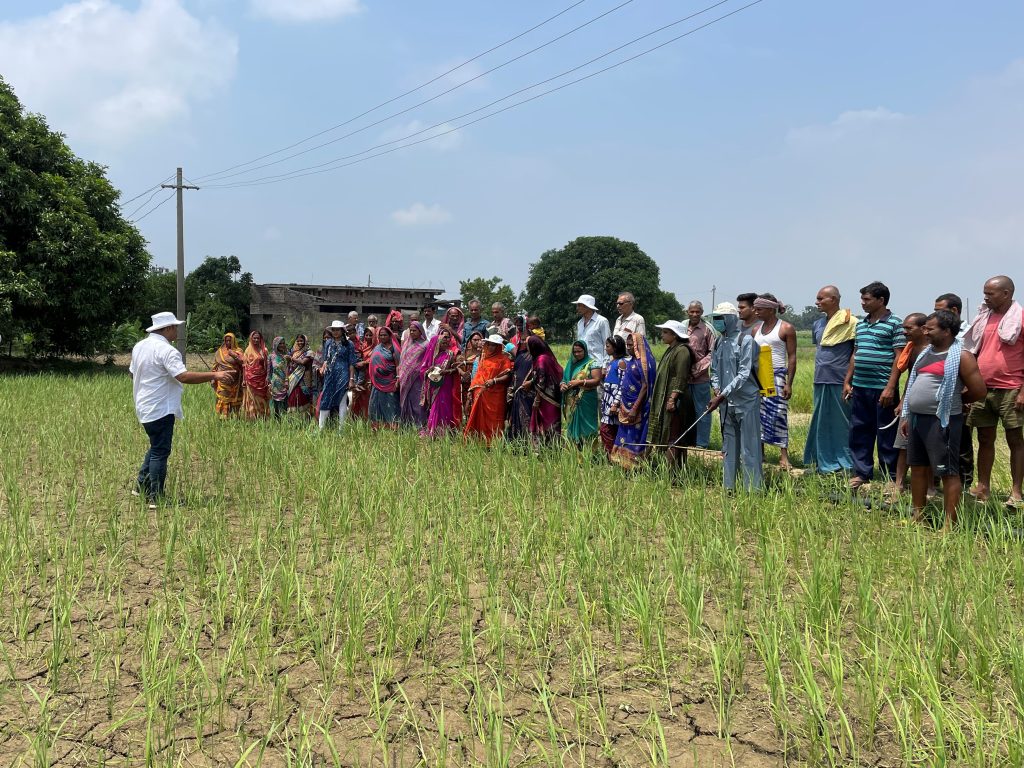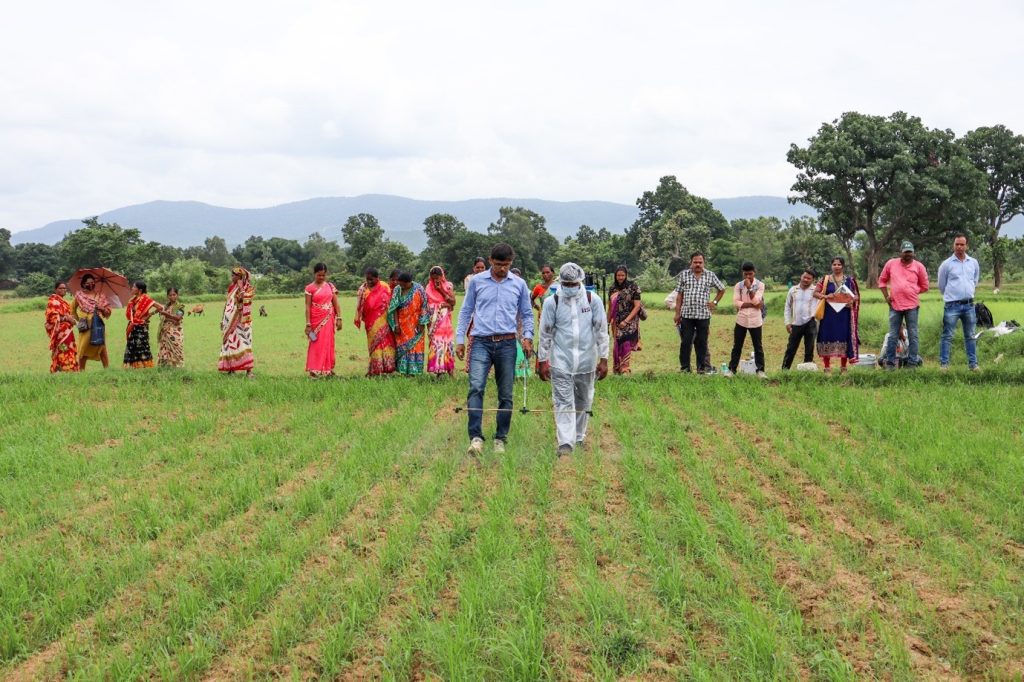Field day training for Weed Management in Rice
Weeds are pernicious and, if left uncontrolled, can lead to significant yield loss and reduce the quality of farm output. In paddy cultivation, weeds are widespread, and a variety of them are found in the fields. These weeds can be controlled by manual weeding by hand or using mechanical implements, or spraying herbicides.
While manual weeding is efficient, it is very labor intensive and time-consuming. Farmers consistently ask for chemical weed control because the current practice of manual weeding has become costly due to labor scarcity. For uniform and efficient use of resources, herbicides are recommended. CSISA encourages farmers with best practices in herbicide application to ensure crops are healthy and protected against weeds.

Munger, Bihar
A one-day hands-on training and field day event on weed management in rice was organized on 25th August at Itahri village, in Jamalpur Block of Munger district. The joint activity by CSISA-KVK saw the participation of 90 farmers, including 23 women farmers. ITC-PRAWAH, a partner in this program, facilitated the participation of farmers from different villages. Head of Panchayat of Itahri village, Mr. Kinnu Kumar, and Sarpanch, Mr. Umashankar Singh, participated in this event as opinion builders and created awareness about weed management. A poster on weeds was shown to them to identify the flora in their fields. Accordingly, recommended herbicides against them with the result of the application were shown to them at the demonstration site.
Farmers generally were unaware of the importance of herbicide application time, amount of water, nozzle’s role, and soil moisture status at the time of application. Looking ahead, we plan to educate dealers on the spraying techniques and identification of weeds through our demonstration sites.
Mr. Dinesh Singh farmer on whose plot the demonstration was held, expressed satisfaction with the results of the herbicide and “learned many new things on spraying techniques, application time,” he said. Mrs. Puja Rani, a farmer who attended the training, is hoping to convince other women farmers on best practices like application of herbicide after 20 days of transplanting, maintaining water quantity, and spraying techniques, as informed by the trainers.

Mayurbhanj, Odisha
On 26th July, hands-on training on ‘herbicide spraying and power weeder’ was organized in Tangabila village in Jashipur Block in the Mayurbhanj district of Odisha by the CSISA-DSR-Odisha team.
The main objective of the training was to identify prevalent weeds and practices available to tackle them. Participants were made aware of the use of herbicides, the correct quantity for application, the right time for application; calibration of the battery sprayer; different types of nozzles for spray in DSR, and use of mechanized power weeder in drill sown DSR.
Farmers, 49 (27 male and 22 female) in total, including FPGs (Farmer Producer Group) and officials from the block and district, participated in the training. Bimala Mohanta, Maa Ganga FPG member, said that because of a lack of information on efficient weed control methods, many farmers had faced yield loss in the past. According to her, the hands-on training will help them to adopt mechanized DSR in the coming years, and she appealed for more such activities to spread awareness amongst farmers at the village level.
